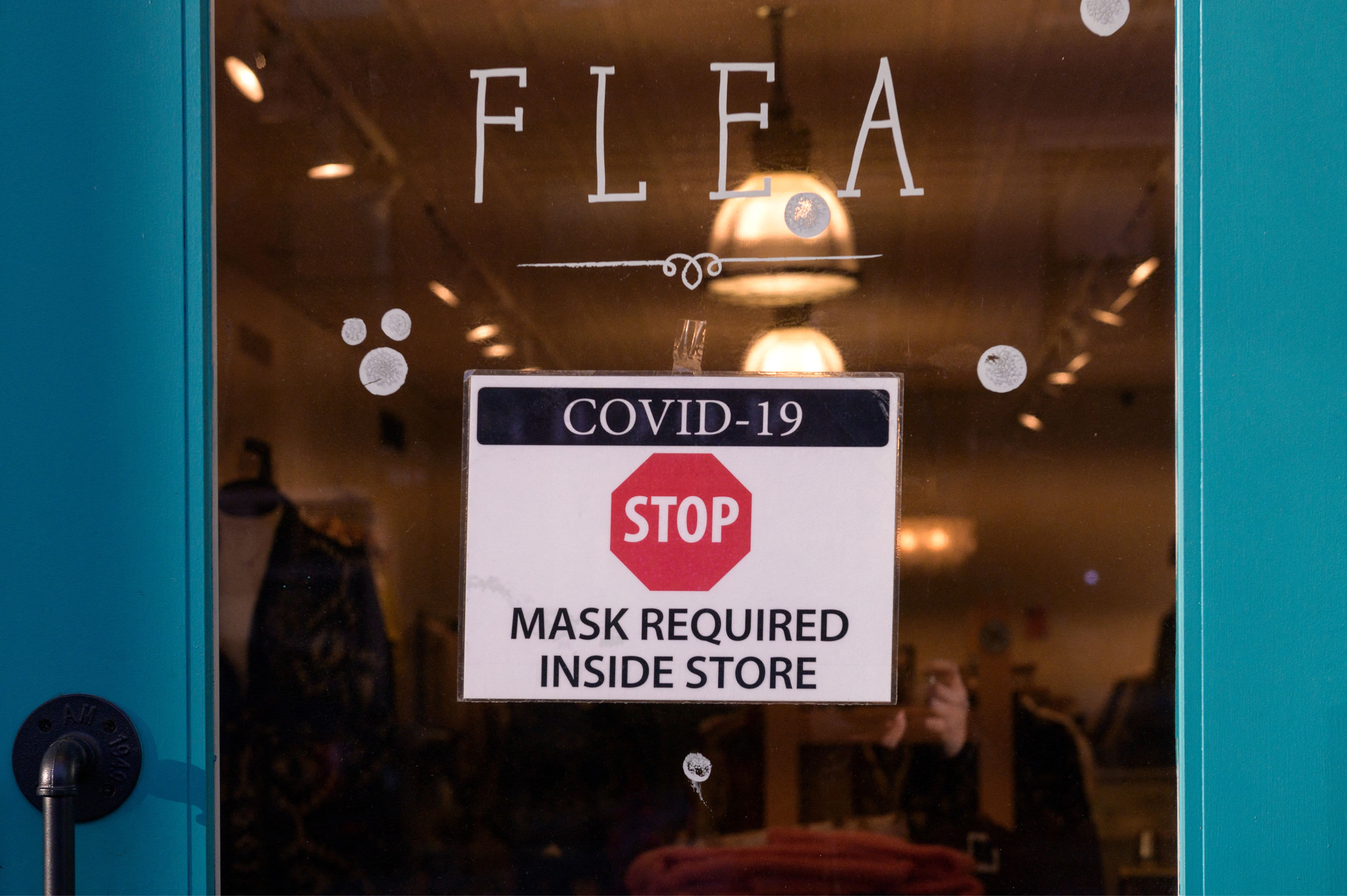The Centers for Disease Control and Prevention relaxed its mask guidance on Friday, allowing most people to ditch their face coverings so long as Covid-19 hospitalizations in their communities remain low.
Under the new CDC guidance, people are advised to wear masks in public areas indoors, including schools, when there’s a lot of virus circulation in their communities that could overwhelm local hospitals. More than 70% of Americans live in communities where wearing masks is no longer recommended under the new CDC guidelines, because hospitals are not under severe threat from disease there.
The CDC’s new focus on the impact of severe disease on hospitals marks a significant shift away from the agency’s previous use of Covid infections as the key metric when issuing public health guidance.
“With widespread population immunity, the overall risk of severe disease is now generally lower,” Dr. Rochelle Walensky, director of the Centers for Disease Control and Prevention, told reporters during a call on Friday. “This updated approach focuses on directing our prevention efforts towards protecting people of high risk for severe illness and preventing hospitals and health-care systems from being overwhelmed.”
People can check whether masks are recommended for their county at the CDC’s website. Under a color-coded system, people who live in green counties with low Covid levels do not need to wear masks. People who are at high risk and live in yellow counties where there’s a medium Covid level should consult with their doctor about wearing a mask. People who live red counties with high Covid levels should wear masks in indoor public places and schools.
Under the new guidance, masks won’t be required indoors if average new cases fall below 200 per 100,000 residents, there are fewer than 10 Covid admissions per 100,000 people over the past week and Covid patients are taking up less than 10% of available beds, based on a seven-day average. If cases exceed 200 per 100,000 people, masks would be required indoors if new weekly Covid admissions exceed 10 per 100,000 people and patients are taking up 10% or more of hospital beds, based on a seven-day average, according to the CDC’s new guidance.
New York and California lifted mask mandates for indoor public places earlier this month as infections fell, prompting questions about whether the CDC would also change its guidance.
The CDC last made a big change to its mask guidance in July 2021 when the delta variant was sweeping the U.S. At that time, the CDC recommended that people wear masks in indoor public places, regardless of vaccination status, in areas of the U.S. where transmission of the virus is high.
The guidance from the summer remained in place as the more contagious omicron variant displaced delta in December, setting off the largest wave of infection since the pandemic began. However, scientists and public health officials later found that omicron generally doesn’t make people as sick as delta. As infections soared to an unprecedented level, hospitalizations and deaths did not rise at the same rate.
The U.S. is reporting a seven-day average of about 75,000 new cases per day, according to data compiled by Johns Hopkins University, a 91% decline from the pandemic record of more than 800,000 average daily cases seen on Jan. 15.
Hospitalizations have also fallen sharply, to about 57,500 patients with Covid in the U.S. as of Thursday from a high mark of more than 159,000 on Jan. 20, based on a seven-day average of data from the Health and Human Services Department. The daily Covid death toll reached its highest level in nearly a year on Feb. 1 at an average of more than 2,600 per day, and has since fallen to about 1,740, Hopkins data shows.
Correction: A previous version of this story misstated the data used to determine whether people live in a community where masks are recommended. The data has been updated.
